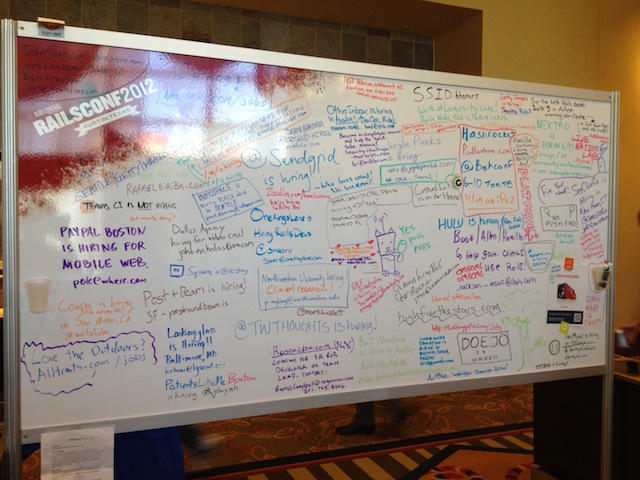
Know how developers think to recruit successfully
Honeybadger.io cofounder Benjamin Curtis gave a great talk (slides above) at MicroConf 2014[1] about how to sell products to developers.
You can find my notes on the talk itself in the blog archives.
The talk also provided a great window into how developers think, especially when it comes to how they might think about any job you’re offering them and how they approach both buying decisions and, roughly, career decisions.
In essence, Curtis talked about how developers are driven by three things[2]:
Laziness: From personal experience, one of the key driving forces for most developers can best be covered by simple laziness. The constant question we ask ourselves is: “Has somebody already done this for us?”</p<>
How does this apply to you? You have to be findable. The best developers are not likely going to search you out - you will either need to go to them or at least make sure that you can get your job or presence into the areas where they already are. That’s why posting a job ad in the Ruby Weekly can be so effective. They’re already there; they don’t have to go anywhere, and your job notice is right in front of them.
More than that, you want to remove any and all possible barriers for application[3]. The less work they need to do to let you know they’re interested in an opening and the less research they need to do to find out if the job will work for them, the more effective you’re going to be.
</li>Impatience: Somewhat related to the above, you need to make it as easy as possible for the developer to know if the job is right for them.
Ideally, you’d let them know exactly how the company interested in hiring them operates, the space they’re in, and what their day-to-day job will look like. Think of it as being akin to staging a home. You want them to be figuring out furniture placement by the time they’re done reading the description.
One other technique you could try if you're a technical recrutier: Offer to give them direct access to the hiring manager to answer their questions, if said manager is up for it.
Again, this is about removing barriers. If a developer has to pop open a fresh Google search to find what company you’re hiring for, you run the very real risk that they won’t bother.
After all, they’re lazy and impatient.
Hubris: A common best-developer trait is that they think that they can accomplish almost anything[4]. Each developer is a hammer, and the world is full of nails.
Now, you obviously don’t want to hire purely arrogant developers, but inside each developer you’ll ever hire, you’ll likely find a core of I-can-do-anything.
And you can appeal to that sense, especially if the position you’re hiring for features a particularly difficult problem space or a particularly interesting solution.
The key takeaway for you: recruiting is sales and marketing.
Curtis sells and markets a product. You sell and market a career.
-
Microconf is a fantastic conference for self-funded entrepreneurs held each year in Las Vegas, Nev. ↩
-
These three things originate from a very famous quote from Perl creator Larry Wall. ↩
-
If you go with a job ad/application route at all. Make it even easier for them and just drop them an email, assuming you have a pre-existing relationship, and ask a simple Yes/No question: “Are you interested in this specific job at this specific company?” ↩
-
Or have enough experience to know that with enough time and resources, you really can accomplish damn near anything in software. ↩
-

